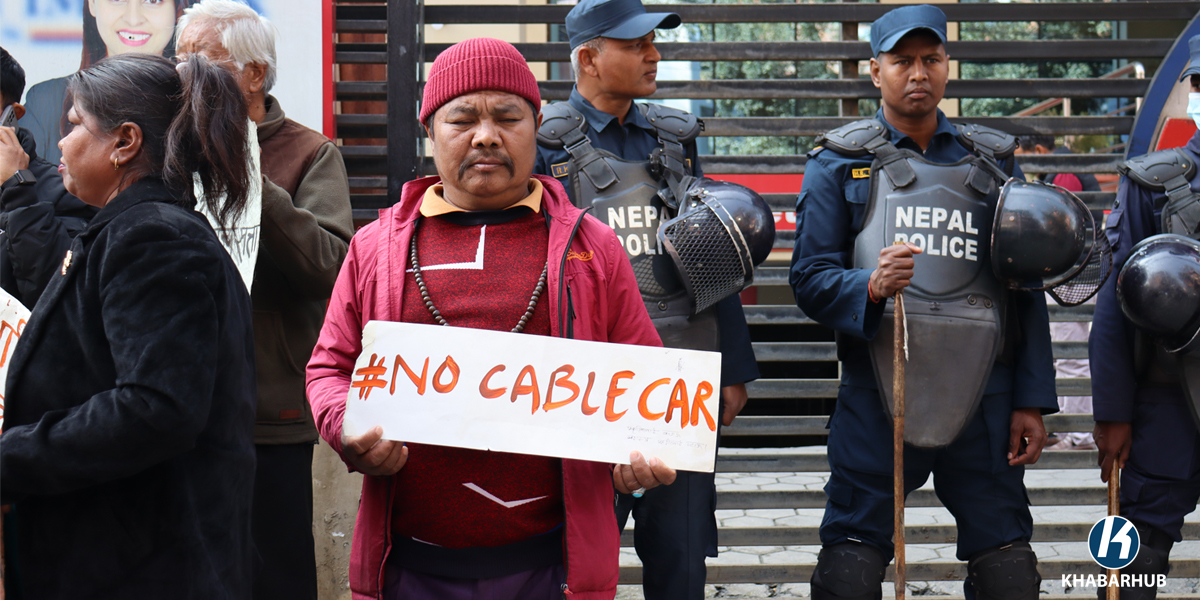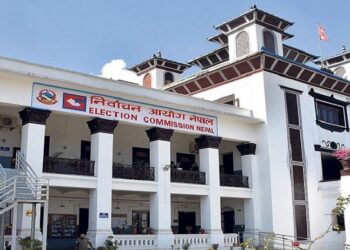KATHMANDU: The construction of a cable car to the sacred Pathibhara Temple in Taplejung has sparked intense opposition and violent clashes, as protests against the project escalate even in Kathmandu.
On November 8, former Constituent Assembly member Dambar Dhwaj Tumbahamphe and Phungling Municipality Mayor Amir Maden laid the foundation stone for the cable car construction in Kaflepati, a move that has triggered fierce resistance.
On Saturday, tensions reached a boiling point when a confrontation between the ‘No Cable Car Group’ and the police resulted in 24 people being injured. The injured include 20 police officers and four local protesters, some of whom sustained gunshot wounds.
The clash was part of an ongoing series of violent confrontations between opposing groups since the foundation stone laying ceremony.
Earlier, on November 8, five people were injured in clashes between supporters and opponents of the cable car during the foundation laying, further fueling the unrest. Protesters have expressed dissatisfaction over the heavy police presence during the event and the forced progression of the construction.
What started as a local protest in Taplejung has now spread to Kathmandu. On Monday, anti-cable car protesters staged a sit-in at the central office of Global IME Bank in Kamaladi.
The protesters, holding placards and shouting slogans against Chandra Dhakal, the chair of the cable car operator IME Group, have warned of stronger resistance if the construction continues.
The protestors argue that the cable car project, being constructed by Himalaya Construction under the IME Group, is a violation of the sacredness of the Mukkumlung area, a region deeply connected to the religious and cultural practices of the indigenous Limbus.
The indigenous community is raising concerns over deforestation and the destruction of wildlife, including Himalayan birds and red pandas, due to the construction.
The Pathibhara area holds significant religious and cultural value for the Limbus, who believe the site is sacred and tied to nature worship.
Protesters argue that the construction of a cable car for private profit will damage the environment, deforest the area, and harm the biodiversity of the region, which is home to ancient plants, herbs, and wildlife.
As tensions continue to rise, both in Taplejung and Kathmandu, it remains to be seen how the government and the private company behind the project will respond to the mounting opposition.









Comment